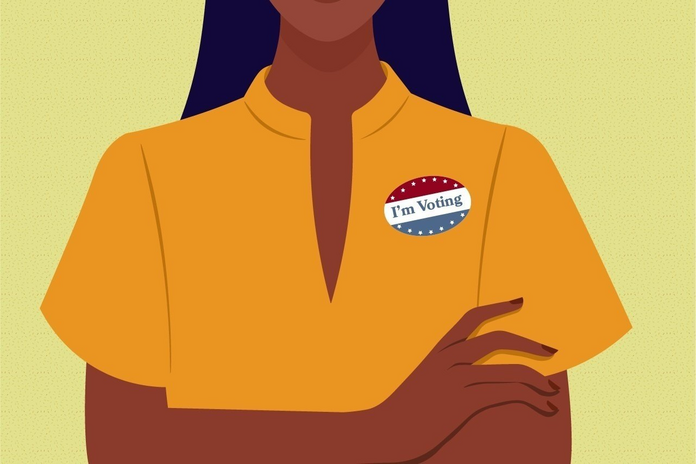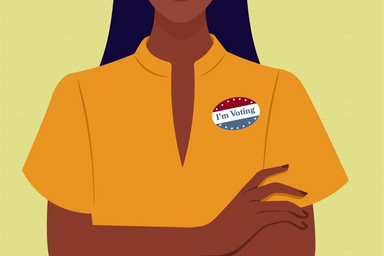On March 25th, Governor Brian Kemp (R) of Georgia signed and approved a series of new bills to alter the state’s voting process and election laws. This decision comes after Georgia’s electoral college voted “blue” for Biden in the 2020 Presidential Election, a historical feat that hadn’t occurred since 1992. GOP Republicans also lost their two senate seats to Democrats John Ossof and Raphael Warnock, Georgia’s first Jewish and Black senators to become elected and represent the state in the United States government.
The bill’s enactment restricts public access to voting, specifically for Black communities who have already experienced extreme voting disenfranchisement throughout United States history. Governor Kemp’s office defended the law’s “expanded access,” stating it will make the voting process “easy” and “harder to cheat.” However, the new legislation places tighter restrictions on those who actively follow voting protocols with no intention of scamming the system, like voting twice or using another individual’s identity to cast their ballot. The bill provides more power to Georgia’s Republican-majority legislature who oversees county election boards (resulting in an intentional lack of power balance between Democrats and the GOP), in charge of authenticating elections, and overall includes firm measures that interfere with standard voting procedures.
Providing substantial identification such as a State ID or driver’s license is now necessary for absentee voting (the utilization of signature matching verification was the previous formality.) These ballots are sent by mail for those who are unable to wait in line on Election Day. Senior citizens and special needs individuals are some examples of people who qualify for this process. Individuals who may have unintentionally misplaced their ID or face difficulties with the renewal process are now steered away from voting, similarly to (formerly) incarcerated individuals who re-enter society and face challenges in ID reissuing because of expiration or loss as well.
Another measure reduces the accessibility of ballot drop boxes that must be stationed at early-voting sites and are only allowed for use during the site’s operation hours. Under the law, individuals who volunteer at voting locations, giving out free food and water for those waiting in line, are now allowed to be prosecuted if caught. It is an immense restriction for Black communities who statistically face extended voter lines (like in Georgia) and need nutrition and hydration to wait in line for ample (and unnecessary) time. This factor only increased due to polling sites’ purposeful limitation of “saving money,” implemented in predominately Black Georgian counties like in 2018 when ten locations were closed without legitimate explanation.
President Biden denounced these enactments the same day they were approved, calling the decision “un-American,” “an atrocity,” and “Jim Crow in the 21st century.” Biden’s statements deem accurate despite Republican defenses of “preserving election integrity” because as a nation, we must ensure every citizen has a fair chance at voting under Constitutional law. How is this possible the creation of restrictions heighten in every election? The Fifteenth Amendment explicitly states that an American citizen’s vote “shall not be denied or abridged by the United States or by any state on account of race, color, or previous condition of servitude.” However, the violation of these rights is a way to deter voters and sway election results overall.
The parallels to Jim Crow laws, whose existence lasted for 100 years to the “post-Civil War era,” are stark. Even through the abolishment of “separate but equal” laws, many polling sites in predominately Black communities lack sufficient functioning than those of White communities, just like the years of Jim Crow segregation.
As previously stated, statistically, voter lines are normalcy in Black neighborhoods like Atlanta who approximately comprise one-third of Georgia’s population and generally vote Democrat. Such as when an estimated 88% voted for Biden in the 2020 Presidential Election. These events are similar to voting constraints after the Reconstruction period in 1887 when the United States Supreme Court federally curbed voting protections causing an increase in voter intimidation under the guise of fraudulence. This result came after African-American candidates won in their respective elections because African-Americans became the voting majority under the Fifteenth Amendment.
Legislators must enact change to reverse the detriments of these laws before they impact future elections and the future of United States history as a whole. The ensuing blatant racism can no longer disguise itself behind the ink and will only increase as time progresses if it does not stop. The continual attempt at shattering American democracy in favor of the latter will leave a stain and generational impact on this nation with a challenging recovery.
On March 26th, voting rights groups, The New Georgia Project (founded by Georgia’s former House of Representatives member, Stacy Abrams), Black Voters Matter Fund, and Rise Inc., sued the state of Georgia in the contest of these new bills, which is a step in the right direction.



